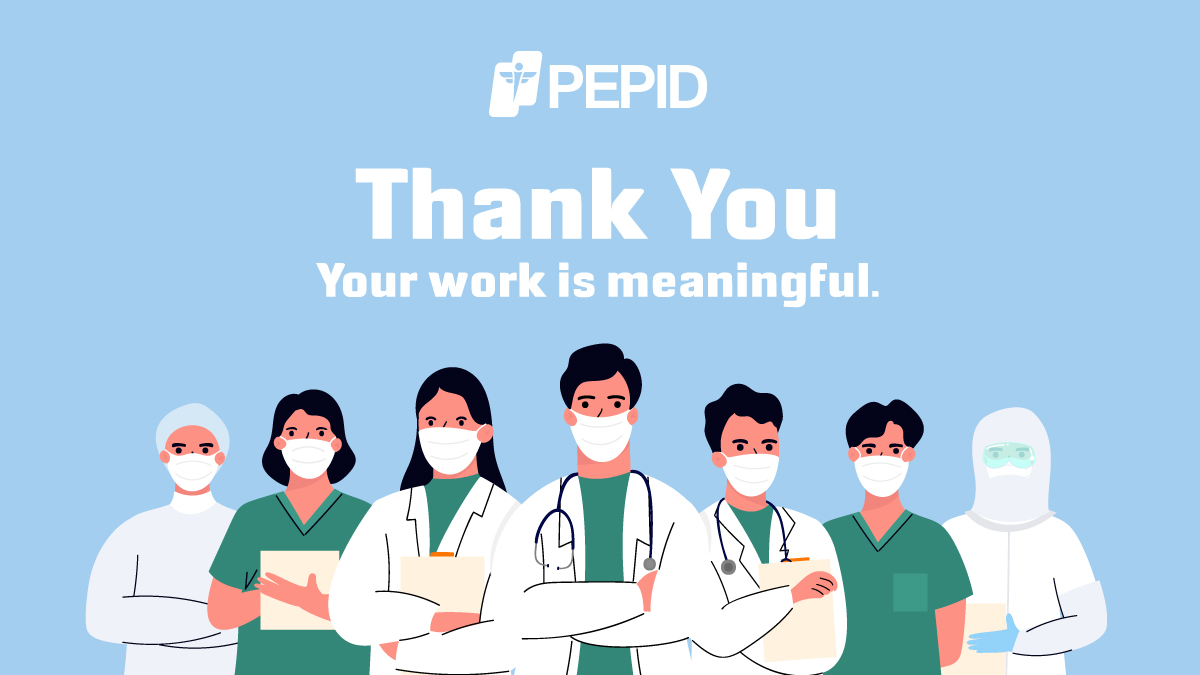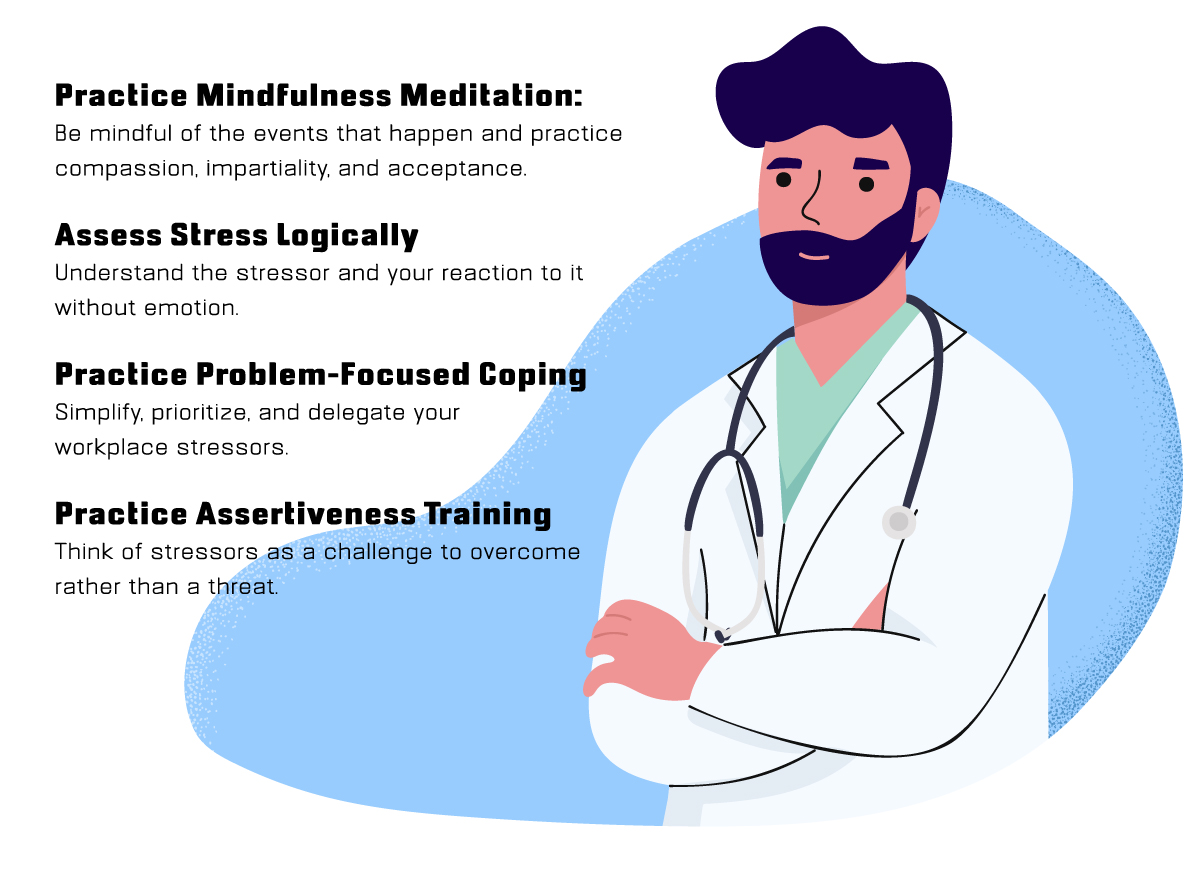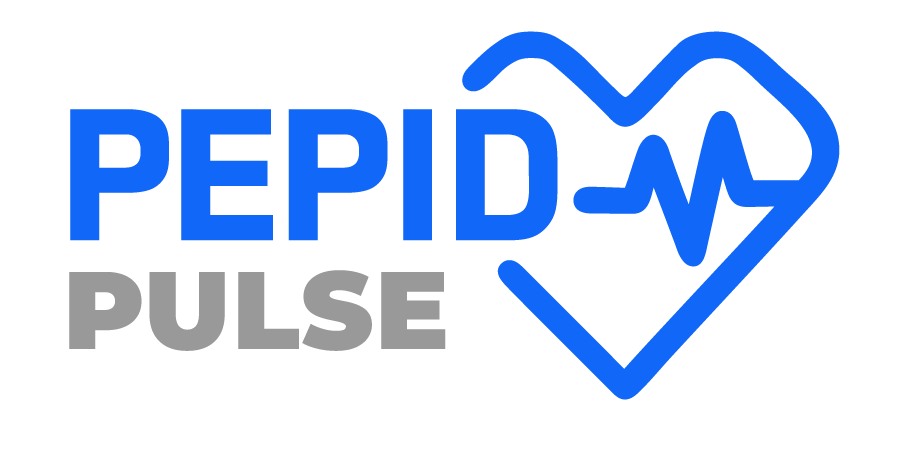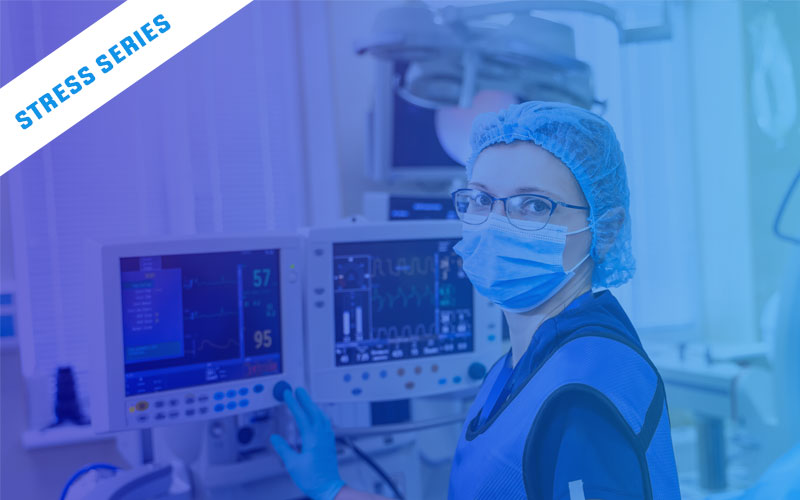ICU Stress Pre-Covid
It is no secret that the critical care working environment heads higher stressors than most professional settings. Before the COVID-19 pandemic, studies found roughly 1 in every 2 ICU professionals reported moderate stress during their normal work. These stressors take an emotional toll on providers.
As of late, more and more reports are being published highlighting the increased prevalence of depression, higher burn out rate and higher suicide rate among physicians compared to the general population. Emergency Medicine Physicians specifically have a higher prevalence of PTSD in pre-pandemic conditions.
Since the onset of COVID-19, front-line workers have stepped up to the plate to take on added stress in the ICU during their shifts. This added stress has led to an emotional strain on ICU professionals. A survey of ICU nurses in Wuhan, China reported great psychological pressure in caring for critically ill patients with COVID-19 that manifested into immune-system-weakening decreased appetite, fatigue, difficulty sleeping, nervousness, frequent crying, and worst of all suicidal thoughts. To say the least, there is a higher prevalence of stress for ICU professionals during these unprecedented times. This article defines stress and explores mechanisms to cope with stress among critical care providers.

The Concept of Locus of Control
Stress appears in all types of manifestations. When we take a step back to look at the experience of stress, one can define it as an external locus of control. Locus of control refers to a generalized belief regarding how the outcome of a situation is influenced, and is broken down into internal and external locus of control. For example, a person with an internal locus of control believes that they can make meaningful decisions that can affect their lives, as well as the people around them. A person with an external locus of control believes that outcomes of a situation are beyond their control, and their actions are meaningless or unlikely to influence the outcome of a situation. The belief of an external locus of control often causes feelings of stress, anxiety, and hopelessness.
Working in the ICU brings patients with severe illnesses or conditions, high comorbidities, and novel infectious diseases. These factors cause higher incidences of death, and can contribute to a feeling of failure and even hopelessness for ICU professionals i.e. external locus of control. However, the idea that ICU professionals actions in the ICU are not meaningful, is false. It is vital to minimize such feelings and beliefs among ICU staff, and rather instill and maintain an internal locus of control among an ICU team. The following outlines recommended stress management techniques that support a culture of internal locus of control that can be used to empower front-line providers.
1. Say it often, “Your work is meaningful, you are significant”
The article “Burnout, boreout and compassion fatigue in the ICU” by Erwin J O Kampanje affirms ICU burnout is not from stress alone but rather a “lack of existential significance and professional performance.” This external locus of control type of thinking must be replaced with a reminder that ICU professionals’ work is exceptionally important and meaningful. Despite negative outcomes that occur, it is important to remind healthcare providers that their efforts are still appreciated. That every life touched, and every life saved is significant – they do make a difference. One can reduce the feeling of hopelessness and external locus of control by creating the habit of reminding providers of this fact.

2. Be Mindful During Shifts
The increased demand in the ICU has left many providers 12 hours deep without a break. The American Medical Association chimes in with six recommendations to help providers manage the continually increased stress during the COVID-19 pandemic. Adopting these recommendations will support an internal locus of control for ICU professionals.
First and foremost, providers must be cognizant of their essential needs (i.e. food, sleep, hygiene, water, healthy snacks, and coffee) during their shift. This includes monitoring hours worked and being diligent in taking breaks. Providers should seek mental health support if needed. Leadership in clinics, hospitals, and health systems must show compassion and empathy about what front-line providers are going through and acknowledge the fears of working with COVID-19 patients. Properly spread out work among staff, including those who must work from home. Finally, be mindful to “maintain a culture of wellness.” This essentially means to encourage an environment where all staff workers are mindful of each other’s stress levels to create an infrastructure of empathy and compassion for the higher stress levels at all levels of healthcare workers.

3. Adapt Psychological Techniques to Process Stress
There are several methods to assist in reducing the feeling of stress. The following are techniques to bolster resistance to stress. Although these methods take time and practice, they are effective for long-term resilience to stress.
“Mindfulness Meditation” is a technique that has been shown to reduce stress. As the name implies, the individual tries to be mindful of the events that happen, including negative events. During their mindfulness one encourages compassion, impartiality, and acceptance in their thought processes. Instead of pushing negative events away, one is encouraged to accept them and train oneself to acknowledge situations that are out of personal control and let them go with compassion, impartiality and acceptance. In this process one would further try to come to terms with the nature of working in the ICU (i.e. cannot save every patient) and acknowledge the difficulties of the field.
A second method is to assess stress logically. This method encourages one to analyze and understand the stressor and one’s reaction to that stressor. This method emphasizes making the distinction between positive and negative thoughts, associated with stressors with the goal of removing all emotional reaction to stress by analyzing stressors logically. For example, after a particularly stressful shift, one may reflect on the factors that made the shift stressful, for example the ED did not have an adequate amount of PPE for the ICU staff. Observe, and take away the emotion.
A subset of this method is called “Problem-Focused Coping.” Problem-focused Coping is where the individual simplifies, prioritizes, and delegates stressors. This habit will help to reduce feeling overwhelmed during busy shifts. Learn about the stress Stress-scoring System to Distribute Patients in the ED that led to 60% reduction in variability of stress levels of ED physicians.
Finally, another method to coping with stress is called “Assertiveness Training.” This training encourages an individual to think of stressors as challenges to overcome rather than the traditional feeling that a stressor is a threat. Assertiveness training creates a practice of empowerment rather than defeatist thinking, and can help during times of high stress in the ICU.

The Takeaway
Practice these strategies to create a habit of positive reminders for ICU professionals, healthier work conditions and a stronger resilience to stress as an achievable first step mitigate burnout from the added stress for front-line providers. Then move right along to encourage health systems to address the environmental and systemic inefficiencies for ICU workers.
Written by Wasiq Khawar & Megan Brown
References
Berg, S. (2020, March 20). 6 ways to address physician stress during COVID-19 pandemic. Retrieved August 28, 2020, from https://www.ama-assn.org/delivering-care/public-health/6-ways-address-physician-stress-during-covid-19-pandemic
DeLucia, J. A. (2019, August 28). Prevalence of Post-Traumatic Stress Disorder in Emergency Physicians in the United States. PubMed. https://pubmed.ncbi.nlm.nih.gov/31539331/
EJO;, K. (2009). Burnout, boreout and compassion fatigue on the ICU: It is not about work stress, but about lack of existential significance and professional performance. Retrieved August 28, 2020, from https://pubmed.ncbi.nlm.nih.gov/29464299/
Goodfellow, A., Varnam, R., Rees, D., & Shelly, M. (2005, April 09). Staff stress on the intensive care unit: A comparison of doctors and nurses. Retrieved August 28, 2020, from https://onlinelibrary.wiley.com/doi/full/10.1111/j.1365-2044.1997.213-az0348.x
Granger, C. (2020, August 25). Coping with Stress in the ICU (C. Granger). Retrieved August 28, 2020, from https://healthmanagement.org/c/icu/issuearticle/coping-with-stress-in-the-icu-c-granger
Kumar, A., Pore, P., Gupta, S., & Wani, A. (2016). Level of stress and its determinants among Intensive Care Unit staff. Retrieved August 28, 2020, from https://www.ncbi.nlm.nih.gov/pmc/articles/PMC5384390/
Lederer W, Kinzl JF, Traweger C, Dosch J, Sumann G. (2008) Fully developed burnout and burnout risk in intensive care personnel at a university hospital. Anaesthesia & Intensive
Care. 36 (2) 208-13
Mata, D. A. (2015, December 8). Prevalence of Depression and Depressive Symptoms Among Resident Physicians: A Systematic Review and Meta-analysis. Depressive Disorders | JAMA | JAMA Network. https://jamanetwork.com/journals/jama/fullarticle/2474424
Shen, X. (2020, May 6). Psychological stress of ICU nurses in the time of COVID-19. Critical Care. https://ccforum.biomedcentral.com/articles/10.1186/s13054-020-02926-2


Easy to read